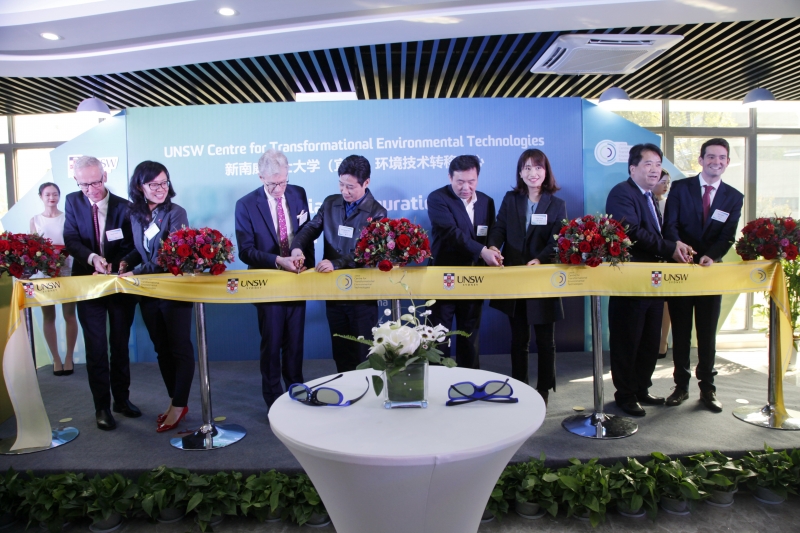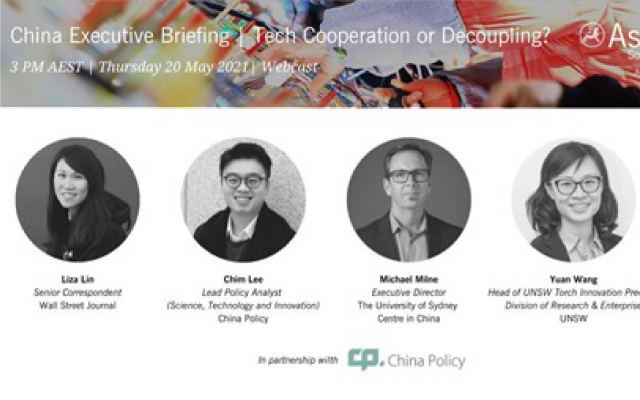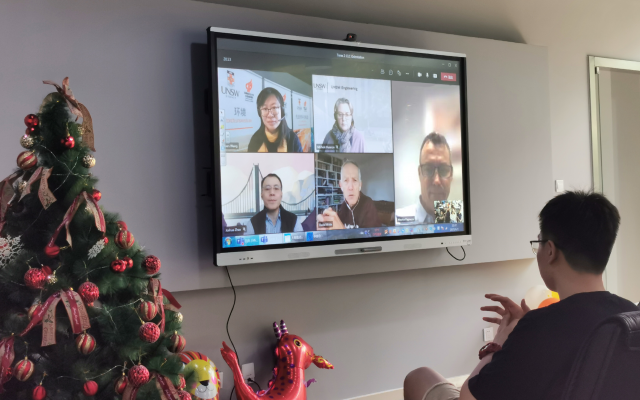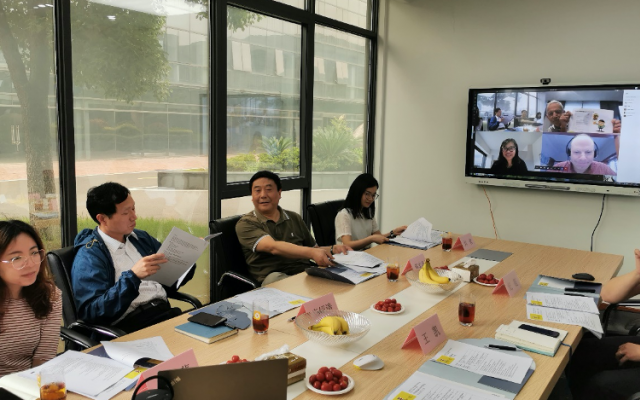UNSW officially opens its first overseas research centre in China
Originally published by UNSW Newsroom
The facility is dedicated to environmental protection and will generate opportunities for Chinese and Australian industry partners.

Scientia Professor David Waite, CEO and Executive Director of CTET; Dr Yuan Wang, Head of UNSW Torch Innovation Precinct and GM of CTET; Professor Nick Fisk, UNSW DVC-Research; Mr Zhongping Zhou, Deputy Party Secretary of Yixing Municipal City; Mr Yidong Hu, Party Secretary of JITRI (Jiangsu Industry Technology Research Institute); Ms Ziling Cheng, Torch High Technology Industry Development Centre, Ministry of Science and Technology; Mr Xufeng Zhu, Director of Yixing ES&TP; Mr Rhett Miller, Trade Commissioner (Education) of Australian Consulate-General Shanghai.
UNSW Sydney has opened its first overseas research centre in Yixing, China, a facility dedicated to driving research and commercial opportunities in environmental protection, especially water treatment, resource recovery and environmental management and sustainability.
The UNSW Centre for Transformational Environmental Technologies (CTET) will be operated through the Torch Innovation program in partnership with Yixing Industrial Park for Environmental Science and Technology, the only hi-tech (Torch) zone focused on the development of an environment protection industry in China.
The official inauguration of the UNSW CTET was attended by Deputy Vice-Chancellor (Research) Nicholas Fisk, CTET's Executive Director and CEO, Scientia Professor David Waite, Australian and local Jiangsu dignitaries, industry partners and professors from leading Chinese universities.
Professor Fisk outlined the progress that UNSW has made in positioning itself as Australia's global university and the significance of the new centre to its 2025 Strategy.
He said: "The Strategy is founded on three pillars – academic excellence, social engagement including knowledge exchange, and global impact.
"The CTET will be a platform for demonstration, development and commercialisation of UNSW innovations, know-how and technologies across the whole of China. It will provide unprecedented opportunities in R&D for both Chinese and Australian industry partners who work with us, and with each other, with the view to turning innovative breakthroughs into new products and services that will impact people's lives."
The Centre will focus on areas including advanced oxidation to destroy non-biodegradable and toxic substances in water, electrochemical technologies for contaminant removal and resource recovery, and development of new generation membranes that help minimise pollutants and energy use.
The Centre has already secured more than $3 million in funding from partners including the Jiangsu Industrial Technology Research Institute (JITRI), Goldwind Environment and Puxin Environment for research activities at UNSW Sydney and in China.
Professor Waite said that the success his team has had in attracting interest from new partners is thanks to UNSW's reputation as a leader in water and environmental research.
"As UNSW's first overseas research centre, the CTET will provide exciting opportunities for our Australian partners to connect with Chinese counterparts. It will also become a base for UNSW undergraduates and graduates to engage with companies in China, through industrial training placements. I hope that by bringing academics, industry, entrepreneurs and investors together, we will improve environmental outcomes here in China, at home in Australia and around the world," Professor Waite said.




